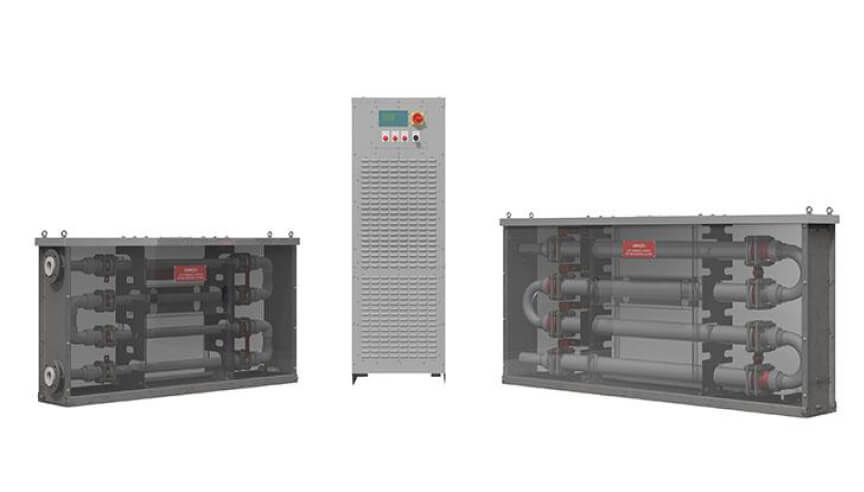Recent Posts
A Breakthrough in Marine Growth Prevention Systems (MGPS)

Electrochlorination: A Breakthrough in Marine Growth Prevention Systems (MGPS)
In the realm of maritime industries, where efficiency, reliability, and environmental responsibility intersect, Electrochlorination emerges as a game-changer. At the forefront of this technology are Marine Growth Prevention Systems (MGPS), which utilize Electrochlorination to combat biofouling. This article delves into the significance of Electrochlorination in MGPS systems, elucidating its mechanics, advantages, and transformative impact on marine operations.
Understanding Electrochlorination in MGPS Systems
Electrochlorination is a process that employs electrolysis to produce sodium hypochlorite (NaOCl) from seawater or brine. This sodium hypochlorite serves as a potent biocide, effectively controlling the growth of marine organisms such as algae, barnacles, and mollusks in water systems. In MGPS systems, Electrochlorination operates as a proactive solution against biofouling, safeguarding critical infrastructure onboard vessels and offshore installations.
Mechanism of Electrochlorination
The Electrochlorination process involves the following steps:
- Electrolysis:
Seawater or brine is passed through an electrolytic cell where an electric current is applied. This current causes the breakdown of water molecules into hydrogen gas (H2) and hydroxide ions (OH⁻) at the cathode, and chlorine gas (Cl2) is produced at the anode. - Chlorine Conversion:
The chlorine gas generated at the anode reacts with water to form hypochlorous acid (HOCl) and hydrochloric acid (HCl). The hypochlorous acid dissociates into hypochlorite ions (OCl⁻) and hydrogen ions (H⁺), resulting in the production of sodium hypochlorite (NaOCl), a powerful oxidizing agent commonly known as bleach. - Dosing and Disinfection:
The sodium hypochlorite produced is then dosed into the water systems, where it effectively disinfects the water and prevents the settlement and growth of marine organisms.
Advantages of Electrochlorination in MGPS Systems
1. Environmental Sustainability:
Electrochlorination offers a sustainable alternative to traditional chemical biocides used in marine antifouling treatments. By utilizing seawater and salt as raw materials, the process eliminates the need for storing, handling, and disposing of hazardous chemicals, thus reducing the ecological footprint of marine operations.
2. Cost-effectiveness:
The adoption of Electrochlorination in MGPS systems translates into significant cost savings over time. By preventing biofouling and corrosion, the technology reduces maintenance expenses and extends the lifespan of critical equipment, optimizing operational efficiency and profitability for maritime stakeholders.
3. Operational Efficiency:
Electrochlorination automates the dosing and monitoring of biocides in water systems, streamlining operational processes and minimizing human intervention. This enhanced efficiency ensures consistent disinfection levels and regulatory compliance while freeing up crew members to focus on other essential tasks.
4. Safety and Reliability:
Safety is paramount in maritime operations, and Electrochlorination prioritizes crew safety by eliminating the risks associated with handling toxic chemicals. The technology operates safely and reliably, mitigating the potential for accidents and ensuring continuous protection against biofouling without compromising environmental integrity.
Future Implications and Conclusion
As marine industries navigate toward greener and more sustainable practices, Electrochlorination in MGPS systems emerges as a beacon of innovation. Its multifaceted benefits, ranging from environmental stewardship to operational excellence, position it as a cornerstone technology in the maritime landscape. Moving forward, continued research and development in Electrochlorination hold the promise of further advancements, driving positive transformation and resilience across marine operations worldwide.
